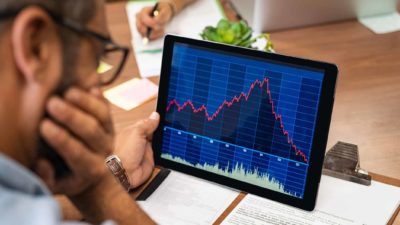The COVID-19 pandemic extracted a heavy price on the portfolios of most investors even though there are early signs that the worst is past.
But it's going to take some time for the value of your ASX shares to return to the pre-coronavirus peak when the S&P/ASX 200 Index (Index:^AXJO) hit a record high on February 20.
Don't blame yourself if you sat on your hands throughout the bear market as the speed of the market collapse gave little time for investors to react.
Caught by surprise
However, fund managers don't have this luxury of doing nothing as they are accountable to clients and have to issue quarterly reports. The latest reports won't look pretty, although investors should pay attention to what the professionals are doing during the turmoil.
It could give clues on where the next set of opportunities might lie.
JP Morgan's latest Fund Manager Radar report provides some insights to the trends. It seems that the professionals were taken as much by surprise by the economic fallout as mum and dad investors.
Forced to act
The broker scanned the February factsheets issued by fund managers to look for keywords. What it found was that all of them contained at least one mention of coronavirus, with several highlighting this several times.
"Notably, however, there were very few references to 'recession'. This highlights the suddenness and severity of the COVID-19 onslaught," said the broker.
Why markets can overreact
If you are wondering why the market seem to overreact to bad news, the next point will give you an importantly clue.
As the market went into a meltdown, fund managers scrambled to increase their cash position. They do this by selling shares.
"Over 70% of the investors we track raised cash holdings in February," said JP Morgan.
"As a result, cash saw the largest up-weight in the period, rising by 30bp [basis points]. A number of investors increased cash aggressively, with the largest increase across the investors we track amounting to 550bp."
Cash is king
The broker noted that this happens regularly during market sell-offs and there are three primary reasons why I think this happens. The first is the obvious need to protect capital.
Another reason is to ensure they have sufficient cash to buy the bargains that a bear markets shake loose. There's nothing worse than letting a good crisis go to waste because you've run out of capital.
Thirdly, and perhaps more significantly, a big market shake-up often leads to redemptions. Nervous investors will try to withdraw their capital when spooked and there are few things worse for fundies to freeze redemptions because they've run out of liquidity.
Fund buying and selling
Now to the fun part. What were fundies buying and selling in the midst of the COVID-19 turmoil? JP Morgan noted they used financials and healthcare stocks as sources for funds.
This may partially explain the huge collapse in the share prices of the big banks. The stocks that were sold include Westpac Banking Corp (ASX: WBC) and Sonic Healthcare Limited (ASX: SHL).
But it was shares in Woodside Petroleum Limited (ASX: WPL) that was among the most sold off in the rush to cash, according to the broker.
On the flipside, the stocks that fundies were buying are the large cap defensive names. This included the AMCOR PLC/IDR UNRESTR (ASX: AMC) share price and A2 Milk Company Ltd (ASX: A2M) share price.








